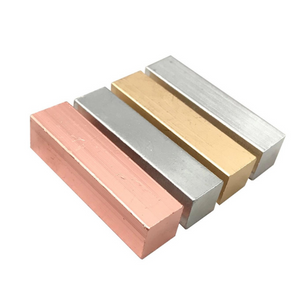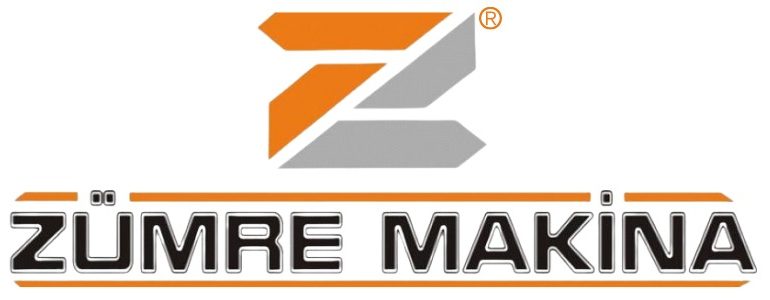CNC Materials: How To Choose The Right Materials for CNC Machining
The adaptability of CNC machining is one of its biggest benefits. This is because precision CNC milling and turning can successfully generate finished products from a wide range of raw materials. When it comes to designing prototypes and commercial products, design engineers have a lot of possibilities.
Metal is used for the majority of CNC turned and machined items. This is due to the fact that metal is both strong and stiff, and it can endure the rapid material removal induced by contemporary techniques. Let’s start with the most often utilized metals for CNC machining.


Materials we can use for CNC machining
We have prepared 40 kinds of material inventory in our partner companies warehouses to ensure that customers’ prototypes and small batch precision machining parts and mass production are completed within 24 hours.Some of our materials are approved by IMDS.
| Material properties | Material model | American Standard (ASTM) | German standard (DIN) | Japanese Standard (JIS) | Chinese Standard (GB) | British Standard(BS) |
|---|---|---|---|---|---|---|
| Aluminum | Aluminum6061 | 6061 | AlMglSiCu | A6061 | LD30 | H20 |
| Aluminum7075 | 7075 | AlZnMgCu1.5 | A7075 | LC9 | L95 | |
| Aluminum2014 | 2014 | AlCuSiMg | A2014 | LD10 | 2014 | |
| Aluminum2024 | 2024 | AlCuMg2 | A2024 | LY12 | GB-24S | |
| Aluminum5052 | 5052 | AlMglSi0.5 | A5052 | LD31 | H19 | |
| Aluminum6063 | 6063 | ALMg2.5 | A6063 | LF2 | NS4 | |
| Aluminum1060 | 1060 | – | A1060 | L2 | – | |
| Aluminum1070 | 1070 | A199.7 | A1070 | L1 | – | |
| Aluminum1080 | 1080 | A199.8 | A1080 | LG1 | 1A | |
| Stainless steel | Stainless steel 304L | 304L | X2CrNi19-11 | SUS304L | 022Cr19Ni10 | 403S17 |
| Stainless steel 316L | 316L | X7Cr14 | SUS316L | 022Cr17Ni12Mo2 | 416S21 | |
| Stainless steel 301 | 301 | X5CrNi17-7 | SUS301 | 12Cr17Ni7 | – | |
| Stainless steel 304 | 304 | X5CrNi18-10 | SUS304 | 06Cr19Ni10 | – | |
| tainless steel 430 | 430 | X6Cr17 | SUS430 | 10Cr17 | – | |
| Brass | CuZn38Pb2 | C37700 | CuZn39Pb2 | C3771 | HPb59-1 | CW612N |
| CuZn39Pb3 | C38500 | CuZn39Pb3 | C3603 | HPb58 | CW614N | |
| CuZn36Pb3 | C38600 | CuZn36Pb3 | C3601 | HPb63 | CW603N | |
| Copper | C10200 | OF-Cu | C1020 | T1 | C101 | |
| C11000 | SE-Cu | C1100 | T1 | C101 | ||
| Steel | Mild steel 1015 | 1015 | C15 | S15C | 15 | 095M15 |
| Mild steel 1045 | 1045 | C45 | S45C | 45 | 080M46 | |
| Mild steel 1020 | 1020 | C22 | S20C | 20 | 050A20 | |
| Titanium | Titanium Grade 1 | GR1 | – | TP270 | TA1 | – |
| Titanium Grade 2 | GR2 | – | TP340 | TA2 | – | |
| Titanium Grade 4 | GR4 | – | TP550 | TA4 | – | |
| Plastic | PTFE | PTFE | PTFE | PTFE | PTFE | PTFE |
| PEEK | PEEK | PEEK | PEEK | PEEK | PEEK | |
| NYLON | NYLON | NYLON | NYLON | NYLON | NYLON |
CNC Materials: How To Choose The Right Materials for CNC Machining
Aluminum 6061 for CNC Machining
This is the most popular aluminum alloy used for CNC machining. Magnesium, silicon, and iron are the principal alloying elements. It has a strong strength-to-weight ratio and is naturally resistant to air corrosion, as do all aluminum alloys. Other benefits of this material include good workability and CNC machinability, the ability to be welded and anodized, and the fact that it is widely available.
6061 has a significantly better yield strength than annealed 6061 when heat-treated to a T6 temper, but the price is slightly higher. When exposed to salt water or other chemicals, one of the disadvantages of 6061 is its weak corrosion resistance. For more demanding applications, it’s also not as robust as other aluminum alloys.
Aluminum 7075 for CNC Machining
Aluminum alloyed mostly with zinc, 7075 is a higher grade of aluminum. It has great strength-to-weight properties and is one of the strongest aluminum alloys used in machining.
Because of its strength, this material has ordinary workability, which means that when cold-formed, it tends to bounce back to its original shape. 7075 can also be machined and anodised.
7075 is frequently T6 toughened. It is, however, a poor choice for welding and should be avoided in the majority of circumstances. For producing plastic injection mold tools, we frequently employ 7075 T6. It’s also employed in high-strength mountain climbing equipment, as well as automotive and aircraft frames and other stressed components.
Brass for CNC Machining
Aluminum alloyed mostly with zinc, 7075 is a higher grade of aluminum. It has great strength-to-weight properties and is one of the strongest aluminum alloys used in machining.
Because of its strength, this material has ordinary workability, which means that when cold-formed, it tends to bounce back to its original shape. 7075 can also be machined and anodised.
7075 is frequently T6 toughened. It is, however, a poor choice for welding and should be avoided in the majority of circumstances. For producing plastic injection mold tools, we frequently employ 7075 T6. It’s also employed in high-strength mountain climbing equipment, as well as automotive and aircraft frames and other stressed components.
